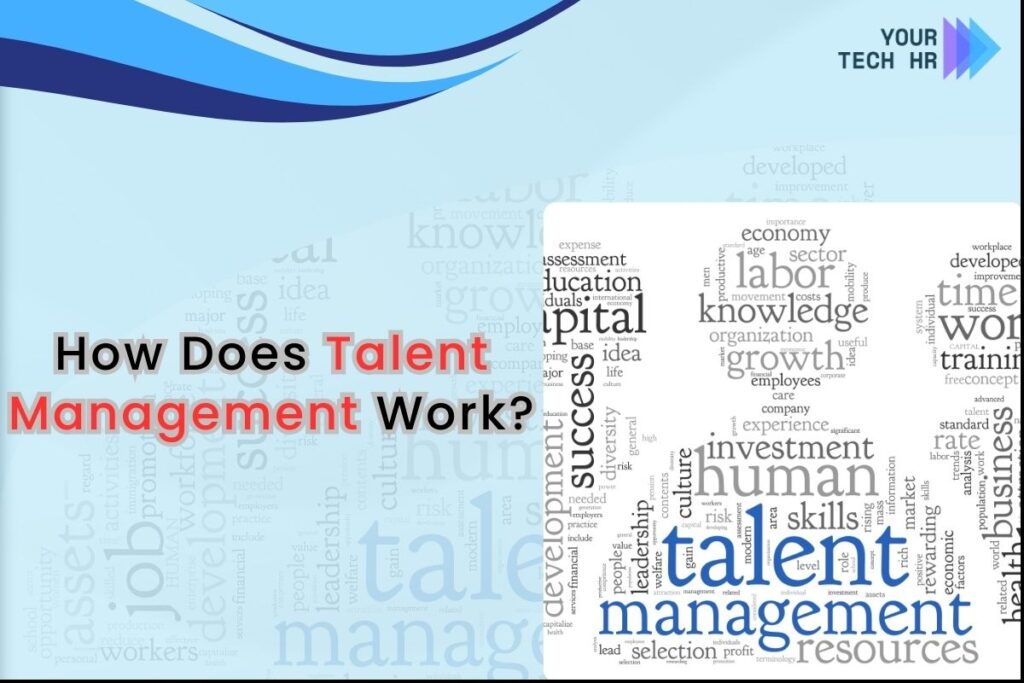Talent management is the process of attracting, developing, and retaining skilled employees to achieve organizational goals. It’s a vital aspect of human resources (HR) strategy that ensures a company has the right people in place to thrive. In this guide, we’ll explore how talent management works, why it matters, and how it can help your organization succeed.
What is Talent Management?
Talent management refers to a company’s commitment to recruit, retain, and develop the most talented employees available in the job market. It encompasses everything from talent acquisition (hiring) to employee development, performance management, and succession planning.
Why Talent Management is Important
- Attracts Top Talent: Effective talent management helps attract skilled professionals who can drive innovation and success.
- Enhances Employee Development: By focusing on employee growth, organizations can develop a more skilled and motivated workforce.
- Improves Performance: With proper management, employees are more likely to meet or exceed performance expectations.
- Supports HR Strategy: Talent management aligns HR practices with the overall business strategy, ensuring that the right talent is in place to meet company objectives.
- Drives Organizational Success: A well-managed talent pool contributes to the overall success and competitiveness of the organization.
Talent management is not just about hiring the right people; it’s about nurturing and retaining them to ensure they reach their full potential within the organization.
Current Trends in Talent Management
- Talent Acquisition with AI
- Companies are increasingly using Artificial Intelligence (AI) to streamline the recruitment process. AI helps in screening resumes, assessing candidate skills, and even predicting their success within the organization.
- Employee Development through E-Learning
- E-learning platforms are becoming popular for employee development. These platforms offer flexible learning opportunities, helping employees enhance their skills and knowledge at their own pace.
- Performance Management Software
- Performance management software is used to track employee progress, set goals, and provide feedback. This helps in maintaining high performance levels and addressing any issues promptly.
- HR Strategy and Data Analytics
- HR departments are leveraging data analytics to inform talent management decisions. Data-driven insights help in understanding employee needs, predicting turnover, and improving retention strategies.
- Focus on Employee Experience
- Companies are increasingly focusing on the employee experience, ensuring that employees feel valued, engaged, and satisfied with their work environment.
Challenges in Talent Management
- Talent Acquisition Difficulties
- Finding the right talent in a competitive market can be challenging. Companies need to stand out to attract top candidates.
- Employee Development Costs
- Investing in employee development can be expensive, especially for smaller organizations. However, it’s essential for long-term success.
- Performance Management Issues
- Managing employee performance can be difficult, particularly in large organizations. Inconsistent feedback and lack of clear goals can hinder employee growth.
- Alignment with HR Strategy
- Ensuring that talent management aligns with overall HR strategy can be complex. Misalignment can lead to ineffective management and wasted resources.
- Retention Challenges
- Retaining top talent is often harder than acquiring it. Companies must provide continuous growth opportunities and a positive work environment to keep employees engaged.
Best Practices for Talent Management
- Use AI for Recruitment
- Implement AI tools to automate the recruitment process, making it more efficient and effective.
- Invest in Employee Development
- Provide regular training and development opportunities to help employees grow and advance in their careers.
- Implement Performance Management Software
- Use software to monitor and manage employee performance, ensuring that feedback is timely and constructive.
- Align Talent Management with HR Strategy
- Ensure that your talent management practices are aligned with your overall HR strategy to maximize their effectiveness.
- Focus on Retention
- Develop strategies to retain your top talent by offering competitive salaries, benefits, and a positive work environment.
- Create a Positive Employee Experience
- Focus on improving the employee experience by fostering a supportive and engaging workplace culture.
Tools and Software for Talent Management
- Recruitment Software
- Tools like LinkedIn Recruiter and Workday help streamline the recruitment process by automating resume screening and candidate assessments.
- E-Learning Platforms
- Platforms like Udemy for Business and Coursera for Business provide employees with access to a wide range of courses and training programs.
- Performance Management Tools
- Software like BambooHR and SAP SuccessFactors help track employee performance, set goals, and provide feedback.
- HR Analytics Tools
- Tools like People Analytics by Visier and ADP DataCloud provide data-driven insights to help with talent management decisions.
- Employee Engagement Platforms
- Platforms like Culture Amp and Glint help measure and improve employee engagement, contributing to better retention and satisfaction.
What You Need to Know About Talent Management
Talent management is about more than just hiring the right people; it’s about creating an environment where they can thrive. By focusing on attracting, developing, and retaining top talent, companies can ensure that they have the skills and expertise needed to achieve their goals.
How to Improve Talent Management in Your Organization
- Start with Effective Recruitment
- Use AI and recruitment software to find the best candidates and streamline the hiring process.
- Invest in Employee Development
- Regularly provide training and development opportunities to help employees grow and advance in their careers.
- Use Technology to Manage Performance
- Implement performance management software to track progress, set goals, and provide feedback.
- Align Talent Management with Your HR Strategy
- Ensure that your talent management practices support your overall HR strategy to maximize their effectiveness.
- Focus on Retention
- Develop strategies to retain your top talent by offering competitive salaries, benefits, and a positive work environment.
Conclusion
Talent management is a critical aspect of HR strategy that can significantly impact an organization’s success. By understanding its importance and implementing best practices, you can attract, develop, and retain the talent needed to achieve your business goals.
Evaluate your current talent management practices and identify areas for improvement. Implement the right tools, invest in employee development, and focus on retention to build a strong, skilled workforce that drives organizational success.


